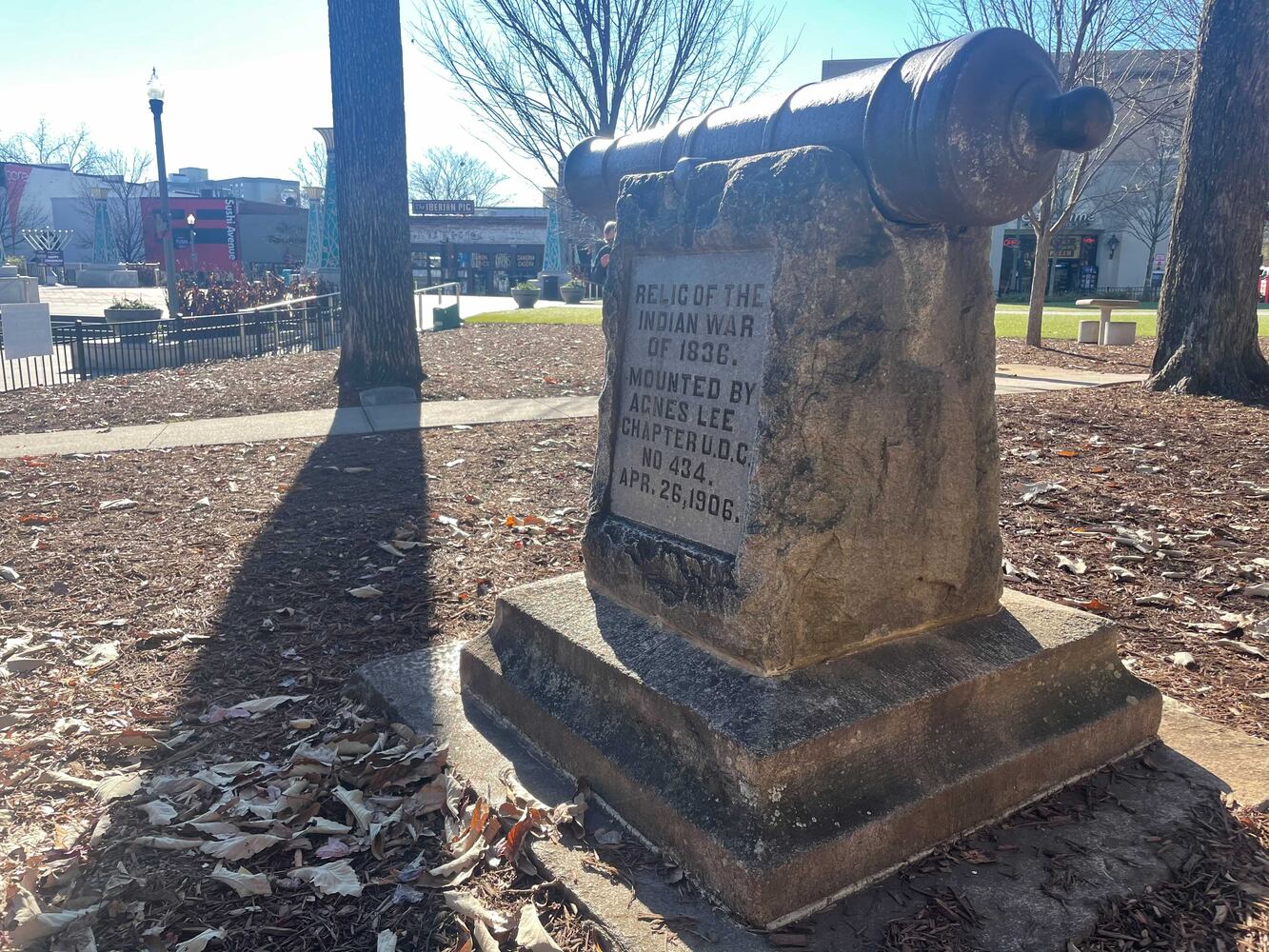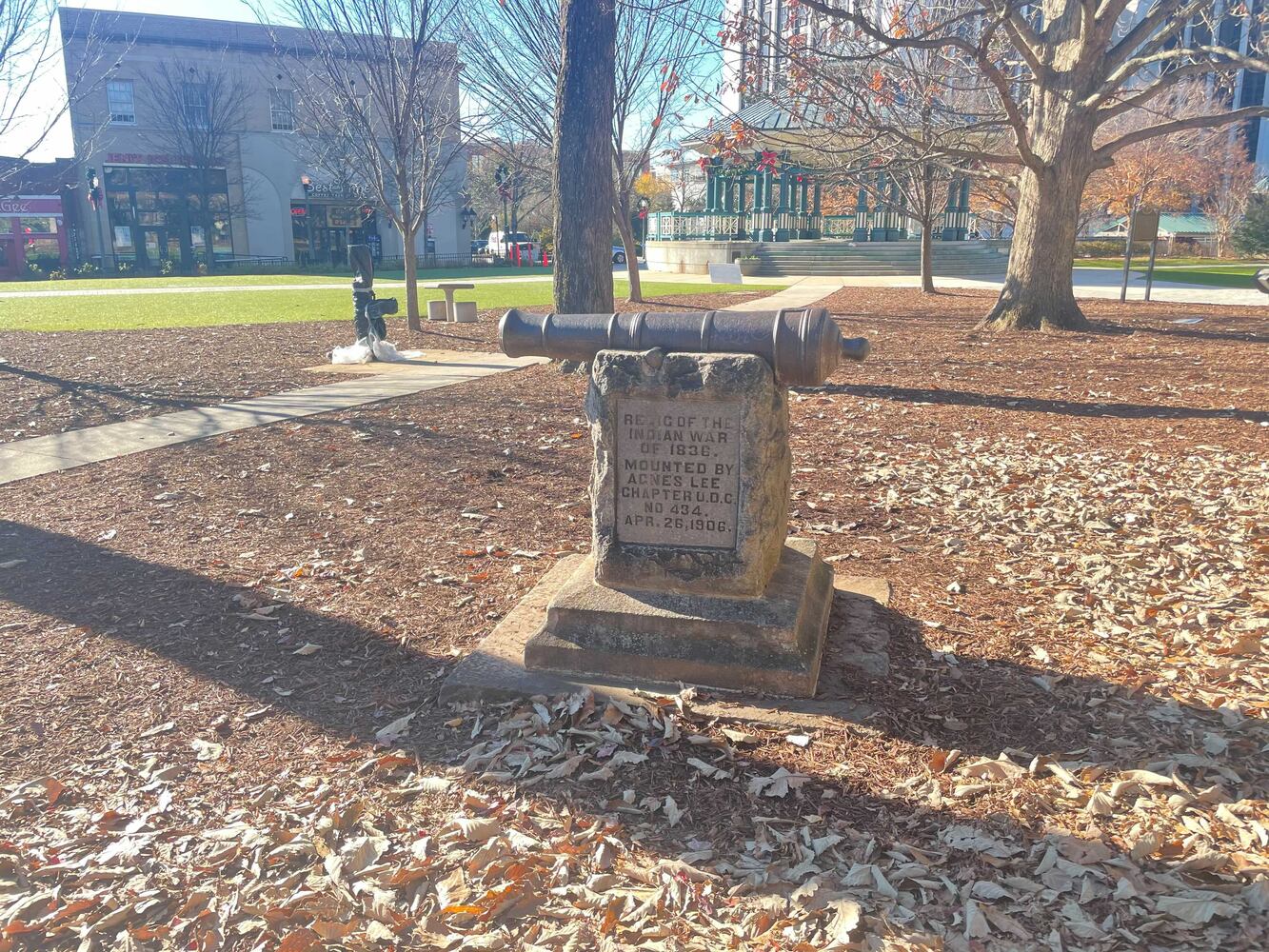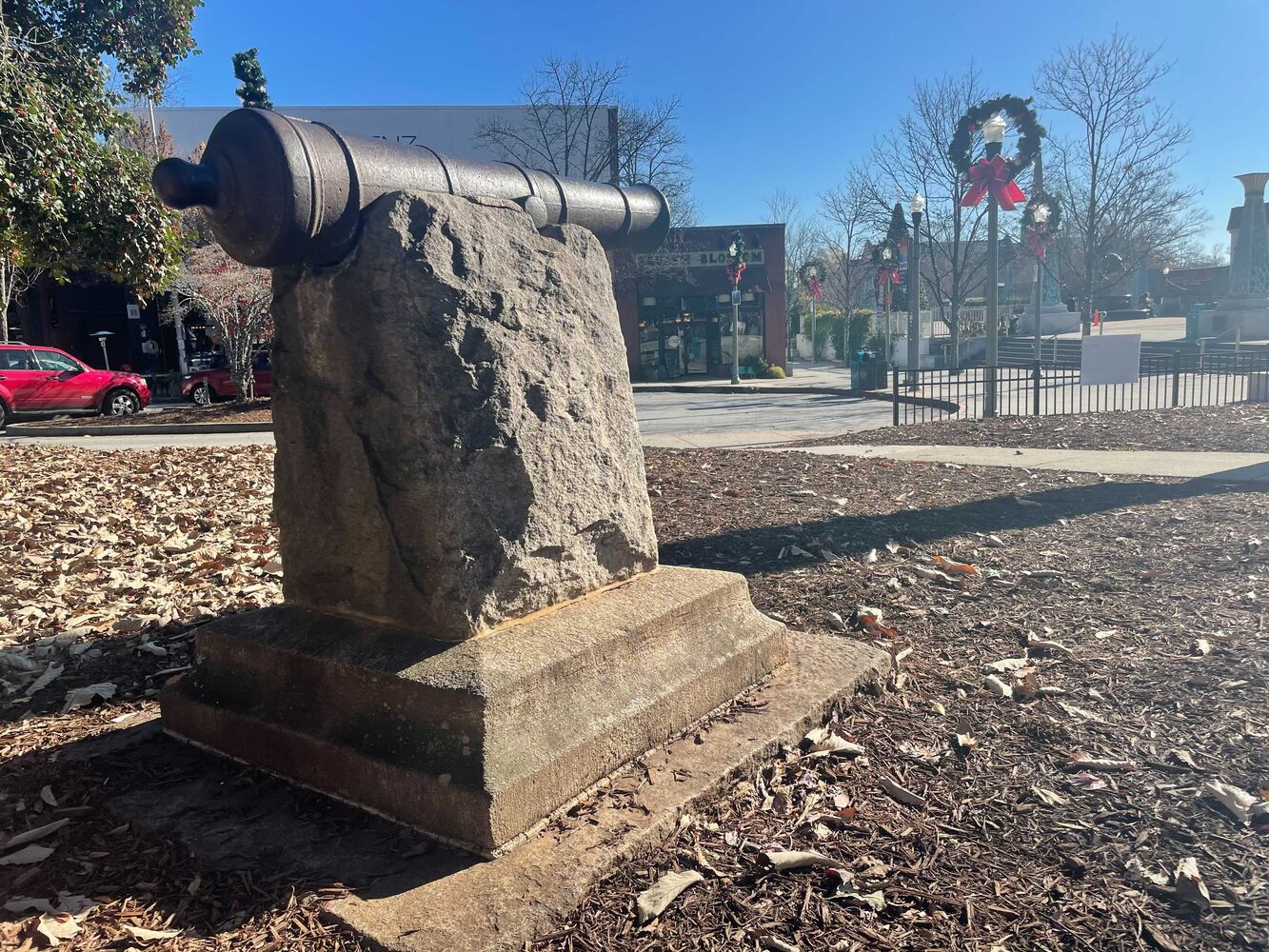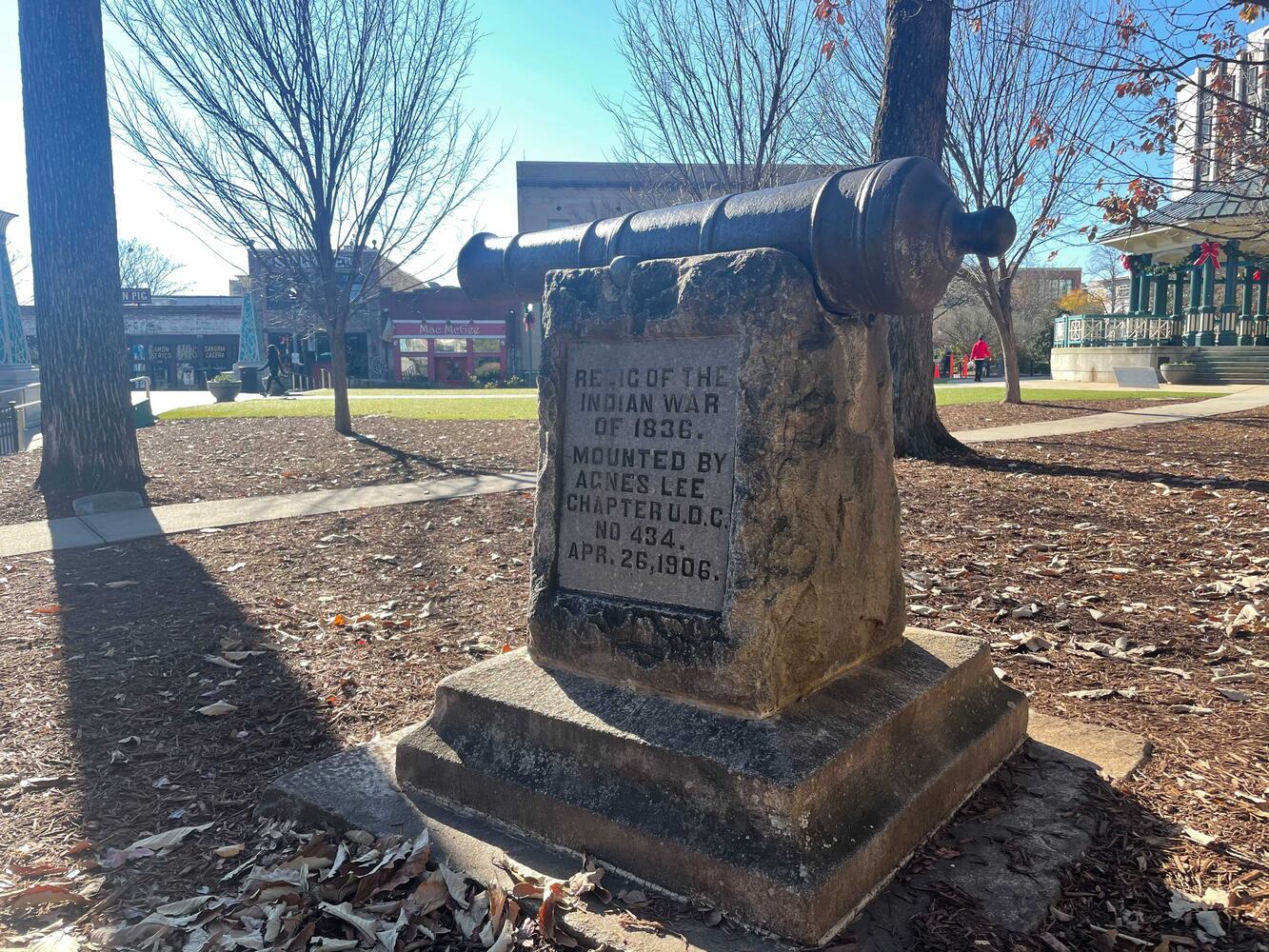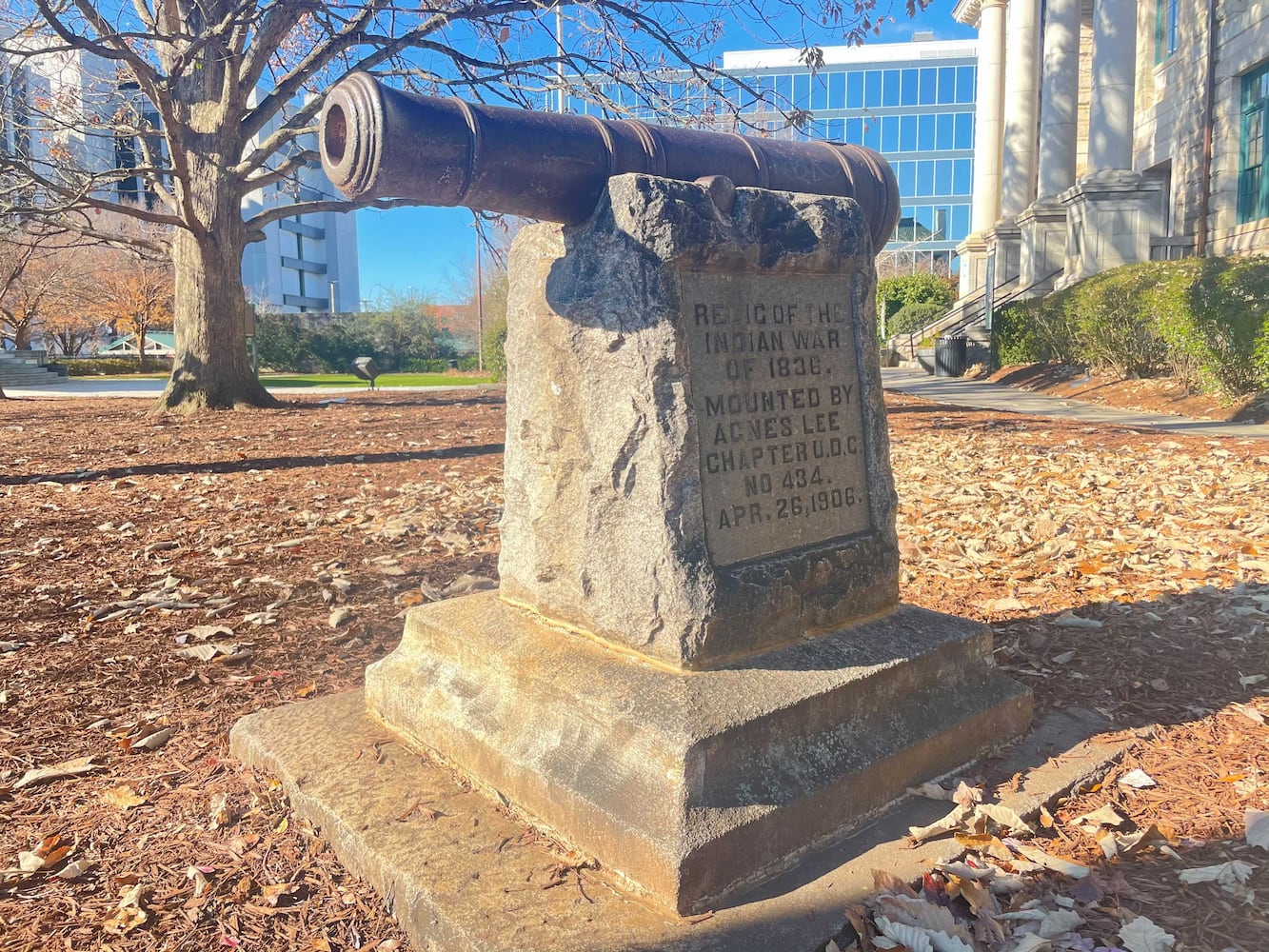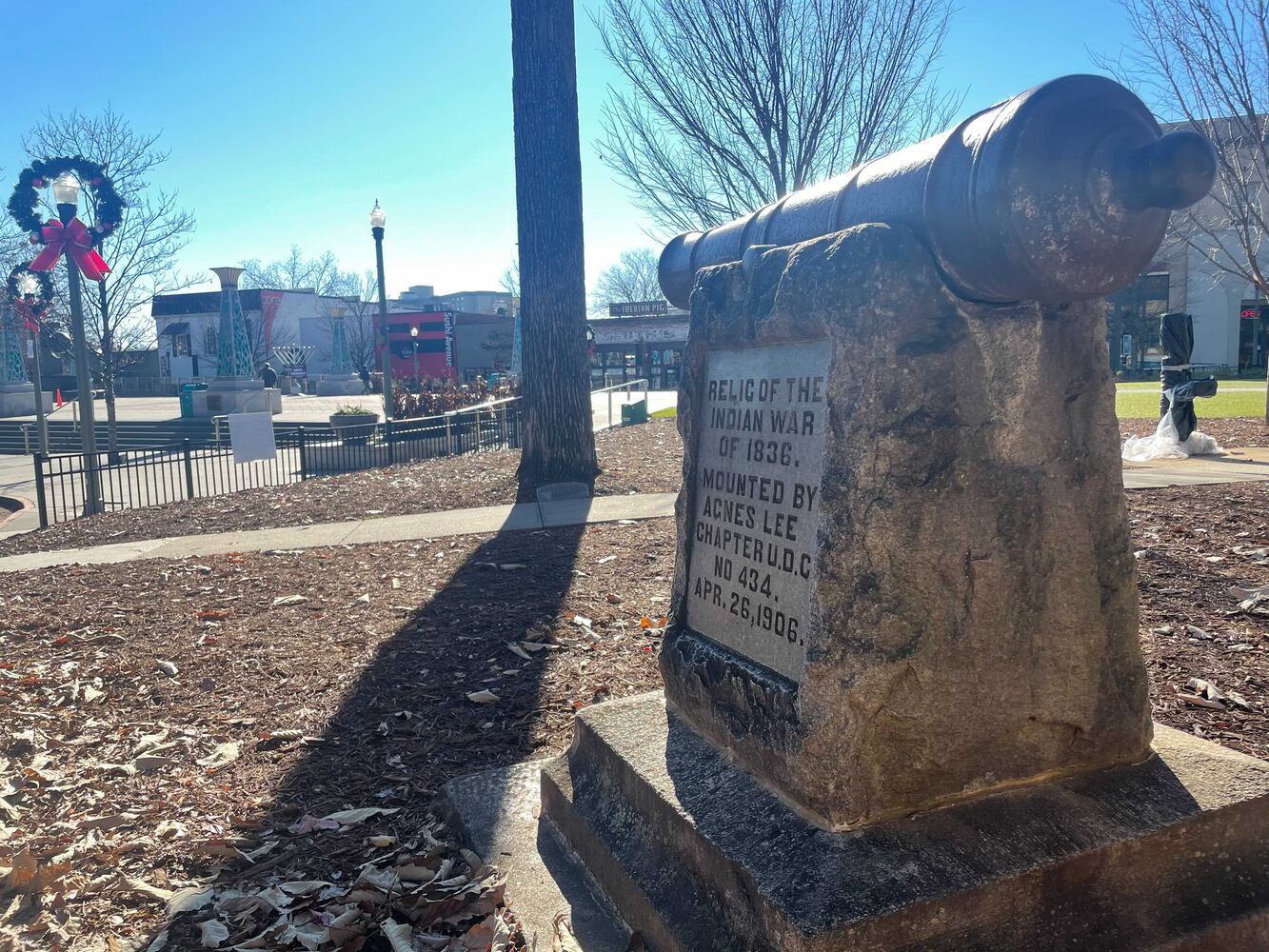A cannon from the Indian War of 1836 may be on borrowed time in Decatur.
After nearly an hour of testimony on Monday night, Decatur’s four city commissioners voted in favor of a resolution supporting the cannon’s removal by the DeKalb County Board of Commissioners.
DeKalb County is responsible for whether the cannon is removed because it is located on county property near the DeKalb History Center.
Decatur Mayor Patti Garrett, who was absent from the meeting, told The Atlanta Journal-Constitution the resolution was drafted after students from Decatur High School asked the commission to consider it.
Decatur Mayor Pro Tem Tony Powers said the county will likely debate the cannon’s future. He encouraged the students to maintain their momentum because “the fight is not over.”
“I feel that I’ve let you down because this has gone on in our city for too long,” said Powers, a Decatur High school alumnus.
The United Daughters of the Confederacy installed the cannon in 1906. The group also installed a 30-foot obelisk a few feet away from the cannon in 1908 to honor DeKalb’s Confederate soldiers.
But DeKalb County Superior Court Judge Clarence Seeliger declared the obelisk a public nuisance this summer, so it was removed in June.
Several Decatur High School students told the commission on Monday that the cannon should be removed because of its ties to the government’s forced removal of indigenous peoples in the 1800s. According to the Muscogee Nation’s website, the U.S. Army enforced the removal of more than 20,000 Muscogee people to Indian Territory in 1836 and 1837.
“We have a hard time with those cannons sticking up there. Some of us are still afraid,” said John Winterhawk of the Muscogee Nation.
Winterhawk told the commission the Muscogee people question the presence of that cannon because “we have no intention of rising against anybody.” The presence of relics like the cannon, he said, are reminders that “we are an oppressed people.”
Decatur High School senior Genesis Reddicks stressed that “Decatur must remove the cannon.” Mark Pifer said it shouldn’t be viewed as a monument to the war. He added that it’s one of Decatur’s oldest pieces of history.
“I think that leaving it in the public eye is a proper reminder that not all of American History ― and personally ― not all of our town’s history is something that we’re proud of, but it is what happened,” Pifer said.
Commissioner George Dusenbury said the cannon should be placed in a museum. DeKalb also needs to figure out how it should handle all of its controversial monuments, he said.
Commissioner Lesa Mayer said she appreciates the community’s efforts “to justify a wrong” from the past. She called Pifer’s testimony equally fascinating and disturbing because the relic is a weapon.
Commissioner Kelly Walsh acknowledged history’s importance, but added that “if I’m given a choice between people and things, I choose people” in order for Decatur to be inclusive for everyone.
About the Author
Keep Reading
The Latest
Featured
